
|
Getting your Trinity Audio player ready...
|
Austria’s far-right Freedom Party (FPO) achieved a historic victory in Styria’s state election on Sunday, marking the first time it has claimed leadership in the region. This significant win follows the party’s strong performance in September’s general election and underscores its growing influence amid ongoing national coalition negotiations.
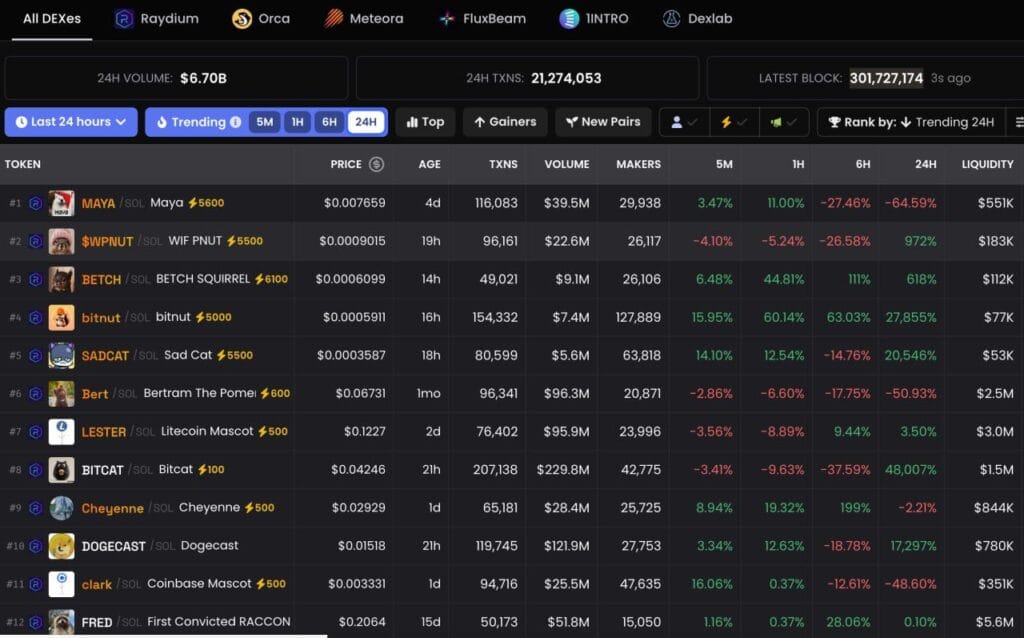
Styria, home to Graz—Austria’s second-largest city—holds limited immediate national sway. However, this outcome adds pressure on political leaders striving to establish the nation’s first three-way coalition government since 1949.
This is only the second state the FPO has ever won. The first was Carinthia, previously a stronghold of the party under Joerg Haider during his leadership in the late 1990s and early 2000s.
“There’s been a landslide in Styria. I didn’t expect such a resounding result,” said Stefan Hermann, the FPO’s deputy leader in Styria, during an interview with national broadcaster ORF.

According to a projection by pollster Foresight for ORF and APA, the FPO is leading with 35.3% of the vote, followed by the conservative People’s Party (OVP) at 26.6%. The estimate, which is based on 70% of votes counted, has a margin of error of 1 percentage point.
For the first time since World War II, neither the OVP nor the Social Democrats (SPO) have emerged victorious in Styria. This marks a dramatic shift in the political landscape of the state, famously known as the birthplace of actor Arnold Schwarzenegger.

Despite its success, the FPO will need to form a coalition to secure a majority in Styria’s state assembly and establish a governing administration. Unlike national elections, where the president decides who is tasked with forming a government, Styria’s rules automatically grant the leading party—now the FPO—the opportunity to set up a state government.
This victory reinforces the FPO’s growing foothold in Austrian politics, signalling a changing tide as the country navigates complex coalition talks at the federal level.
“There’s been a landslide in Styria. I didn’t expect such a resounding result.”
— Stefan Hermann, Deputy Leader of the Freedom Party in Styria
UK–China Reset: What Starmer’s China Visit Really AchievedThe recent visit of UK Prime Minister Sir Keir Starmer to China marks the most significant shift in UK–China relations in nearly a decade. After years of strained diplomacy, both nations appear to be signaling a cautious economic and political thaw, driven by internal financial pressures and shifting global power dynamics.
Starmer’s trip—the first by a British prime minister since 2018—highlights a broader effort to revive trade, rebuild trust, and secure new investment channels between London and Beijing.
Why This Visit Matters
Both Britain and China are navigating economic uncertainty at home. For the UK, the mission aimed to open new trade opportunities in sectors such as:
Finance
Pharmaceuticals
Healthcare
Clean energy
Automotive manufacturing
For China, the visit serves as a strategic message to the West that it remains open to cooperation, especially as the United States adopts a more aggressive trade stance under President Donald Trump.
While no comprehensive free trade agreement emerged, the discussions resulted in tangible economic and diplomatic commitments that signal a slow but deliberate reset.
Key Agreements and Economic Gains
AstraZeneca’s Major Investment
AstraZeneca announced a $15 billion investment in China over the next four years to expand pharmaceutical research and manufacturing. This marks the company’s largest-ever financial commitment in the Chinese market.
UK Entry into China’s Energy Market
British energy firm Octopus Energy partnered with PCG Power to launch a digital electricity trading platform in China. The project is designed to improve power efficiency and support China’s renewable energy expansion, giving the UK a foothold in the world’s largest green energy market.
Scotch Whisky Tariff Reduction
China agreed to cut import tariffs on Scotch whisky by half, a move expected to inject approximately £250 million into the UK economy over five years. The deal strengthens Scotland’s global whisky competitiveness in a rapidly expanding Chinese consumer market.
Visa-Free Travel for British Citizens
British travelers can now visit China visa-free for up to 30 days, improving tourism, business travel, and cultural exchange. The UK joins a list of countries already benefiting from similar access.
Migration & Security Cooperation
Both governments committed to increased collaboration on combating human trafficking and migrant-smuggling networks, aligning with UK domestic security priorities.
What China Gains from the Deal
For Beijing, strengthening ties with the UK sends a powerful geopolitical signal—especially to Western allies skeptical of China’s global role.
China benefits through:
Increased access to UK and European markets
Greater export potential for electric vehicles, solar technology, and renewable equipment
Expanded investment opportunities in British finance, technology, and green industries
Improved diplomatic credibility as a stable global partner
Chinese state media framed the visit as a step toward turning long-term cooperation potential into real-world economic outcomes.
Ongoing Challenges for Foreign Businesses
Despite the progress, international firms still face persistent obstacles in China, including:
Regulatory complexity
Bureaucratic hurdles
Limited transparency
Market access concerns
While UK companies remain optimistic, they acknowledge the need for careful navigation of China’s business environment.
Geopolitical Risks and US Pressure
Starmer’s China outreach comes amid heightened tensions with the United States. President Trump has warned allies—including the UK—against deepening economic ties with Beijing, even threatening punitive tariffs against countries that expand cooperation with China.
Starmer, however, maintains that Britain does not need to choose between Washington and Beijing, framing the strategy as a balanced, growth-focused foreign policy.
Global Context: A Broader Western Shift Toward China
The UK’s visit is part of a broader trend. Leaders from France, Canada, and Finland have also traveled to Beijing recently, seeking economic diversification amid uncertainty in US-led trade policy.
As middle powers attempt to hedge against global volatility, competition for Chinese investment and market access is expected to intensify.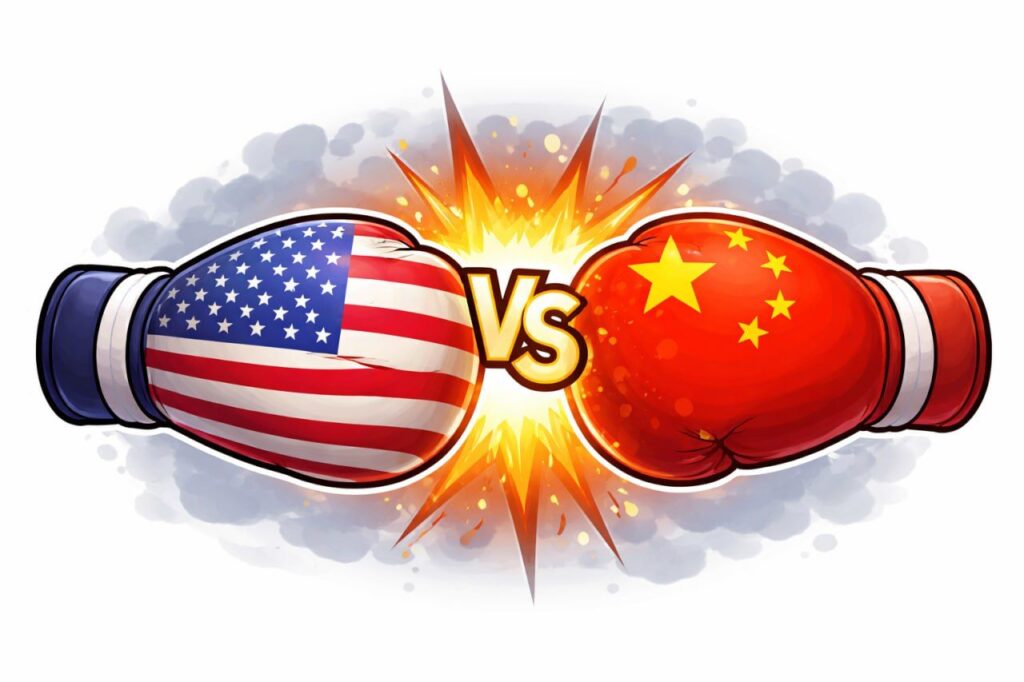
Sir Keir Starmer’s China visit does not mark a dramatic policy revolution—but it does represent a strategic recalibration. The UK is betting on pragmatic engagement to boost economic growth while managing geopolitical risks.
Whether this diplomatic reset delivers long-term benefits will depend on how effectively both nations translate symbolic agreements into sustainable economic progress.
- IShowSpeed and the Collapse of the African Narrative
For decades, Africa has been framed through a narrow and damaging lens. To much of the world—especially in the West—the continent has been reduced to images of poverty, conflict, and stagnation. It is a narrative shaped by selective media coverage, outdated documentaries, and inherited colonial assumptions.
Then, unexpectedly, a 19-year-old American streamer disrupted it.
When YouTube star IShowSpeed embarked on a livestreamed tour across several African countries, he didn’t arrive as a journalist, historian, or activist. He came as himself—unfiltered, unscripted, and visibly curious. What followed was not just a viral moment, but a real-time collapse of a long-standing global narrative.
A Reality Few Were Prepared to See
As Speed streamed from African cities, millions of viewers watched in disbelief. Not because Africa looked unfamiliar—but because it contradicted everything they had been taught to expect.
They saw modern infrastructure, vibrant street life, internet connectivity, music, fashion, laughter, and hospitality. They saw crowds welcoming Speed not as a spectacle, but as family. And most importantly, they saw a continent that looked alive, complex, and contemporary.
The dominant reaction online was not admiration—it was shock.
A recurring sentiment echoed across comment sections and reaction videos:
“We’ve been lied to.”

Contrast That Exposed the Lie
Earlier in his travels, Speed had toured parts of Europe, where he was met with open racism—monkey chants, banana-throwing, and hostility disguised as humor. The contrast was stark.
In Africa, the experience was the opposite. He was protected, celebrated, respected, and embraced. Not as a novelty, but as a brother.
That contrast forced uncomfortable questions: If Africa is “uncivilized,” why did it feel more humane?
If Europe is “developed,” why did it feel more hostile?
The Power of Unmediated Storytelling
What made Speed’s tour so powerful was not intention, but absence of mediation.
There were no institutional filters.
No political framing.
No expert commentary.
Just a peer sharing lived experience in real time.
This is where mainstream media failed—and why a streamer succeeded.
If these images had come from a tourism board, they would have been dismissed as propaganda.
If they came from a documentary, they would have been debated.
If they came from academia, they would have been ignored.
But they came from someone young people trust—because he feels like one of them.
Africa Is Not a Country
One of the most glaring misconceptions exposed by this moment is the idea of Africa as a single place. Africa is a continent of 54 countries, each with distinct cultures, histories, economies, and realities.
Speed’s experience does not represent every African experience. Poverty exists. Conflict exists. Inequality exists—just as it does in the United States, Europe, and elsewhere.
But suffering is not Africa’s defining feature. Complexity is.
An Emotional Awakening, Not a Debate
This was not a policy discussion or an academic correction. It was an emotional awakening.
People do not change deeply held beliefs through statistics.
They change them through emotional proximity.
Speed didn’t argue.
He didn’t explain.
He simply reacted—with joy, curiosity, and wonder.
And those reactions persuaded millions more effectively than decades of lectures ever could.
A Shift in Global Influence
This moment signals something larger:
the decline of institutional narrative control.
Today, YouTube and livestreaming shape perception more powerfully than traditional media. Trust has shifted from institutions to individuals. From experts to peers. From scripts to experiences.
A teenager with a phone accomplished what global media networks failed to do over generations—by simply showing reality.
Reconnection Begins in the Mind
For many in the African diaspora, this moment carried deeper meaning. The lie was not only told about Africa—it was told to people of African descent worldwide. Separation was framed as rejection. Distance was framed as disinterest.
Speed’s journey quietly corrected that distortion.
Africa is not frozen in the past.
It is not waiting to be discovered.
It is living, evolving, imperfect, welcoming, and proud.
And when false filters fall away, truth moves freely.
Danchima Media
Challenging narratives. Restoring context. Telling the stories that matter.
- The Guardiola Blueprint: Manchester City’s Relentless, Costly Pursuit of Perfection
In the rarefied air of the Etihad Stadium, success is not merely measured in trophies—though there are plenty—but in microns of tactical margin, in the seamless execution of an idea. When Manchester City secures a signing, like the reported £65 million capture of Bournemouth’s Antoine Semenyo, the football world reacts with a now-familiar mixture of awe and exasperation. The transfer is another data point in the most expensive scientific experiment the sport has ever seen: the relentless, iterative pursuit of footballing perfection under Pep Guardiola.
For the rivals and the skeptics, the narrative writes itself. It is a story of endless chequebooks and cold disposal. Sign Nathan Aké for £45 million. Didn’t work? Go and spend £50 million on Khusanov, £31 million on Ait-Nouri. Give me João Cancelo for £60 million. Didn’t work? Drop £77 million on Josko Gvardiol.
The list, as fans on social media tirelessly chronicle, reads like a chronicle of excess: £100 million for Jack Grealish, £55 million for Jérémy Doku, £34 million for Savio, a rumored pursuit of Rayan Cherki. In midfield, the search for the elusive formula continues: £42 million for Kalvin Phillips, £53 million for Matheus Nunes, £25 million for Mateo Kovačić, and now, whispers of another £60 million for Fiorentina’s Nico González.
Manchester City last match against Manchester united
It is easy, from the outside, to view this as mere financial gluttony. A cynical cycle of buying, discarding, and buying again, funded by a bottomless well of sovereign wealth. The punchline is always ready: Here’s £80 million for Omar Marmoush, he’s a bum. Take another £65 million for Semenyo.
But to dismiss it as such is to miss the profound, almost philosophical heart of the Manchester City project. This is not scattergun spending. This is targeted, iterative problem-solving on a grand scale. Each “failed” signing is not a mistake to be mourned, but a hypothesis tested. Each successive purchase is a refined variable, a closer approximation of Guardiola’s ever-evolving vision.
The Catalan manager does not buy players; he acquires specialist tools for a specific, complex craft. If one chisel doesn’t hold its edge for the precise cut he needs, he finds another, regardless of cost. The mission—to execute his footballing ideal—is paramount. The financial outlay is merely the resource required to eliminate compromise.

For every Grealish who evolves into a crucial controller, there is a Cancelo whose brilliant individualism ultimately clashes with the system’s demands. The system is non-negotiable. The player, no matter the fee, is adaptable or expendable. It is a brutal calculus, but one executed with chilling efficiency.
This approach demands a particular kind of resilience from a player. It can be a cold environment, lacking the sentimental patience of a traditional club. Yet, for a certain breed of footballer, it represents the ultimate challenge: the chance to work under the game’s most demanding architect, to be a cog in the most finely tuned machine in football history. This, reportedly, is what attracted Semenyo—the chance to be forged by Pep.

New signing to Etihad The emotional cost of this model is the erosion of a romantic, patient narrative. There are no long-suffering heroes here, only temporary engineers of success. But the professional yield is unprecedented: a machine that learns, adapts, and improves with every transaction.
So, when the next £65 million signing is unveiled, remember: you are not just watching a transfer. You are witnessing the latest iteration of a blueprint. A draft revised, a formula tweaked, another step in a costly, heartless, and utterly relentless journey toward a perfect game. The rest of football can only look on, criticize the expense, and wonder if they’re even playing the same sport. - Bold Visions Meet Economic Reality in Davos 2026.
The 2026 World Economic Forum Annual Meeting in Davos, Switzerland, concluded against a backdrop of rising geopolitical tensions, rapid technological change, and renewed economic nationalism under the newly re-elected U.S. President Donald Trump.
Business leaders, policymakers, and innovators gathered to confront the defining questions of the moment: how artificial intelligence will reshape work, how trade wars may redraw global supply chains, and whether governments can balance growth with stability in an era of disruption.
Drawing from coverage by Yahoo Finance, here are the key takeaways shaping markets, boardrooms, and policy debates worldwide.
Elon Musk’s Davos speak
Global Economy: Tariffs, Deficits, and the Future of the Fed
Economic policy dominated much of the Davos conversation, with U.S. leadership setting the tone.
President Trump outlined an aggressive domestic agenda centered on tariffs, energy expansion, and housing affordability. He argued that “homes are built for people, not corporations,” and floated a controversial proposal to cap credit card interest rates at 10% for one year — a move sharply criticized by JPMorgan Chase CEO Jamie Dimon, who warned it could trigger unintended economic consequences.
Trump also hinted at a near-term announcement for a new Federal Reserve chair, with Jerome Powell’s term set to expire in May. The signal alone stirred speculation about future monetary policy, inflation control, and market volatility.

The cybersecurity treat
Dimon, a frequent focal point at Davos, expressed fatigue over repeated questions about Trump’s agenda, bluntly remarking, “What the hell else do you want me to say?” Still, he acknowledged that tariffs remain a strategic “pressure point” on China, even as concerns grow over ballooning U.S. deficits.
Former Federal Reserve Vice Chair Lael Brainard offered a more structural warning, noting that AI-driven productivity gains risk concentrating growth at the top while leaving much of the broader economy stagnant.
Dimon added a sobering forecast of his own: JPMorgan is likely to employ fewer people within five years due to AI adoption — a stark reminder of looming workforce disruptions.
Technology Takes Center Stage: AI, Automation, and Robotics
If there was one dominant theme at Davos 2026, it was artificial intelligence.
Nvidia CEO Jensen Huang dismissed fears of an AI bubble, calling current infrastructure spending “sensible” and describing AI development as a “five-layer cake” — complex, foundational, and still in its early stages. In a discussion with BlackRock CEO Larry Fink, Huang argued that AI will ultimately create more jobs than it eliminates, though not without painful transitions.
Elon Musk once again delivered some of the summit’s most headline-grabbing moments. The Tesla and SpaceX CEO predicted that humanoid robots will reach the consumer market by the end of next year, eventually becoming as common as smartphones. He also projected widespread adoption of Tesla’s Robotaxi services in the U.S. before 2027, alongside rapid progress toward full self-driving vehicles.
Other tech leaders offered more measured optimism. Affirm CEO Max Levchin argued that AI will fundamentally transform retail without replacing major players like Walmart. Reddit co-founder Alexis Ohanian highlighted AI’s potential to democratize access to knowledge, particularly in education and agriculture.
President Trump, however, injected skepticism into the AI frenzy, openly questioning Meta’s reported $50 billion investment in AI data centers: “How do you spend $50 billion?” he asked, echoing concerns among investors about capital efficiency and returns.

Liverpool Crisis
Geopolitics: Trade, Security, and Strategic Alliances
Geopolitical tensions ran beneath nearly every discussion.
Trump reignited controversy by reiterating U.S. interest in acquiring Greenland — not for rare earth minerals, he claimed, but for “international security.” He warned that NATO allies unwilling to support such moves could face tariffs, linking economic pressure directly to defense commitments.
U.S.–China relations also loomed large. While tariffs remain a central tool of U.S. policy, leaders acknowledged the growing difficulty of full economic decoupling. Dimon emphasized the complexity of maintaining competition without triggering systemic instability in global markets.
Energy, Sustainability, and the Bigger Picture
While sustainability was not the headline focus of Davos 2026, it surfaced indirectly through energy discussions. The prevailing tone favored an “all-of-the-above” strategy, emphasizing expanded domestic energy production as a hedge against geopolitical risk and supply shocks.
The absence of a strong climate narrative itself spoke volumes, reflecting a broader shift toward economic security and industrial resilience over long-term environmental commitments.
What Davos 2026 Signals for Markets and Investors
Davos 2026 delivered a clear message: the world is entering a high-volatility era defined by policy uncertainty, technological acceleration, and geopolitical recalibration.
Artificial intelligence is widely seen as the next major growth engine — but one that may deepen inequality and displace workers before benefits are broadly shared. At the same time, aggressive trade policies and potential shifts in U.S. monetary leadership could inject fresh turbulence into global markets.
For investors, executives, and policymakers alike, Davos reinforced a central truth of the moment: in an age of disruption, the intersection of government power and technological influence will define the financial landscape ahead.
- The United Nations’ Double Standard and America’s Global Bullying Problem
For decades, the United Nations has presented itself as the moral compass of the international system—a neutral arbiter committed to peace, sovereignty, and the rule of law. Yet in practice, its conduct exposes a troubling double standard, one that consistently shields powerful states while disciplining weaker ones. Nowhere is this hypocrisy more evident than in the unchecked bullying posture of the United States on the global stage.
The UN is swift to condemn elections, internal politics, or security measures in developing nations. Sanctions are imposed, leaders are delegitimized, and sovereignty is questioned—often based on vague accusations or politicized reports. But when the United States engages in military interventions, economic warfare, covert destabilization, or violations of international law, the UN suddenly becomes cautious, procedural, and silent.
This is not coincidence. It is design.
The structure of the United Nations—particularly the Security Council veto—ensures that powerful states, especially the United States and its allies, remain effectively untouchable. International law is not applied universally; it is selectively enforced. Justice is not blind; it is strategic.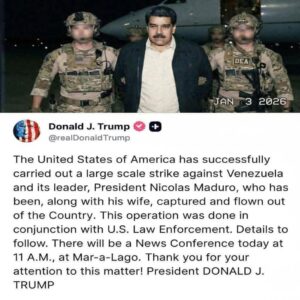
The United States has normalized a culture of intimidation in international relations. Through unilateral sanctions that cripple civilian populations, military bases encircling sovereign nations, and regime-change operations disguised as “democracy promotion,” Washington operates less like a partner in global governance and more like a global enforcer answerable to no one.
When nations resist this pressure, they are labeled “rogue states,” “authoritarian regimes,” or “threats to democracy.” Their leaders are demonized. Their economies are strangled. Their people are made to suffer—not as collateral damage, but as leverage.
And the United Nations? It issues statements.

This passivity is not neutrality. It is complicity.
By failing to confront U.S. aggression with the same urgency applied to weaker states, the UN has undermined its own credibility. It has become an institution that manages power imbalances rather than corrects them—one that legitimizes coercion through silence and normalizes abuse through selective outrage.
The consequences are profound. Smaller nations learn that international law will not protect them. Sovereignty becomes conditional. Multilateralism becomes a myth. And the UN, rather than serving as a shield for humanity, becomes a stage where power performs legitimacy.
If the United Nations is unwilling or unable to hold the United States to the same standards it imposes on others, then it cannot claim moral authority. An institution that excuses bullying while punishing resistance is not a guardian of peace—it is an accessory to domination.
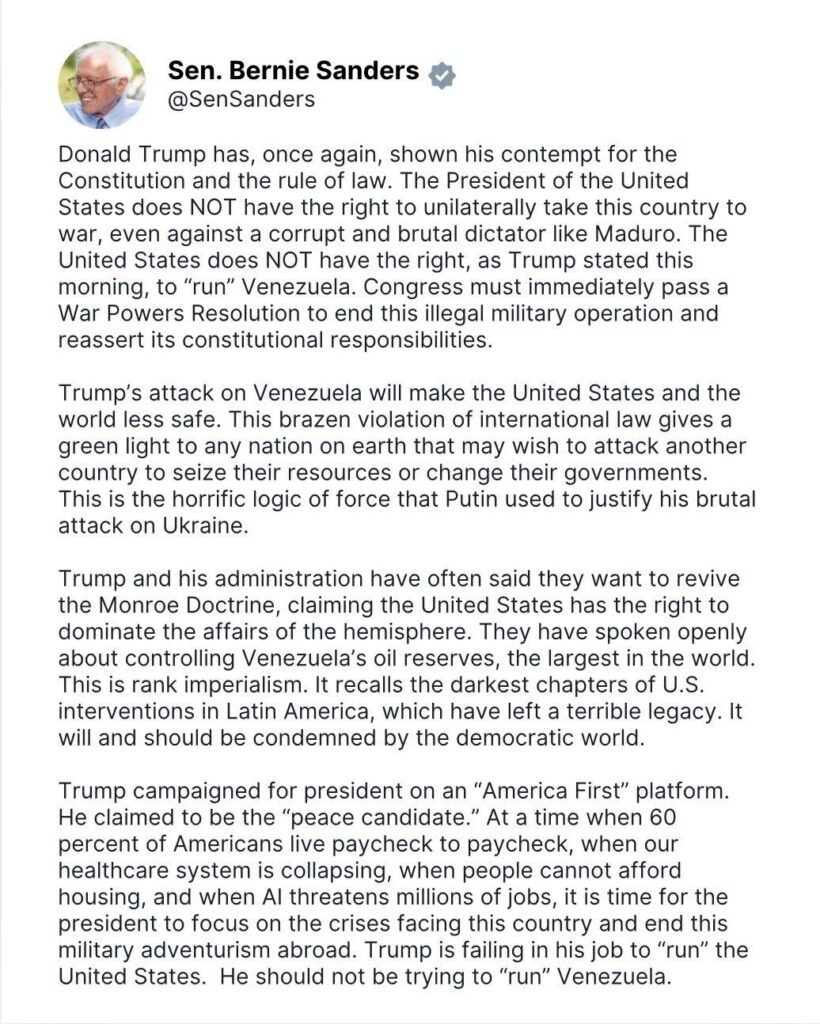
Sanders post
The world does not need a rules-based order where only the weak must obey the rules. It needs genuine accountability, equal sovereignty, and an international system that restrains power rather than worships it.
Until that transformation occurs, calls for reform will ring hollow, and the United Nations will continue its slow descent from global conscience to ceremonial spectator—watching injustice unfold, one double standard at a time.






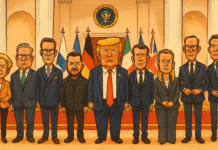


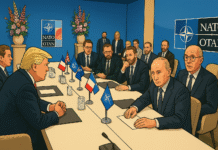
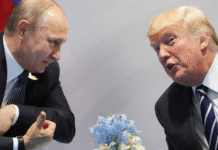


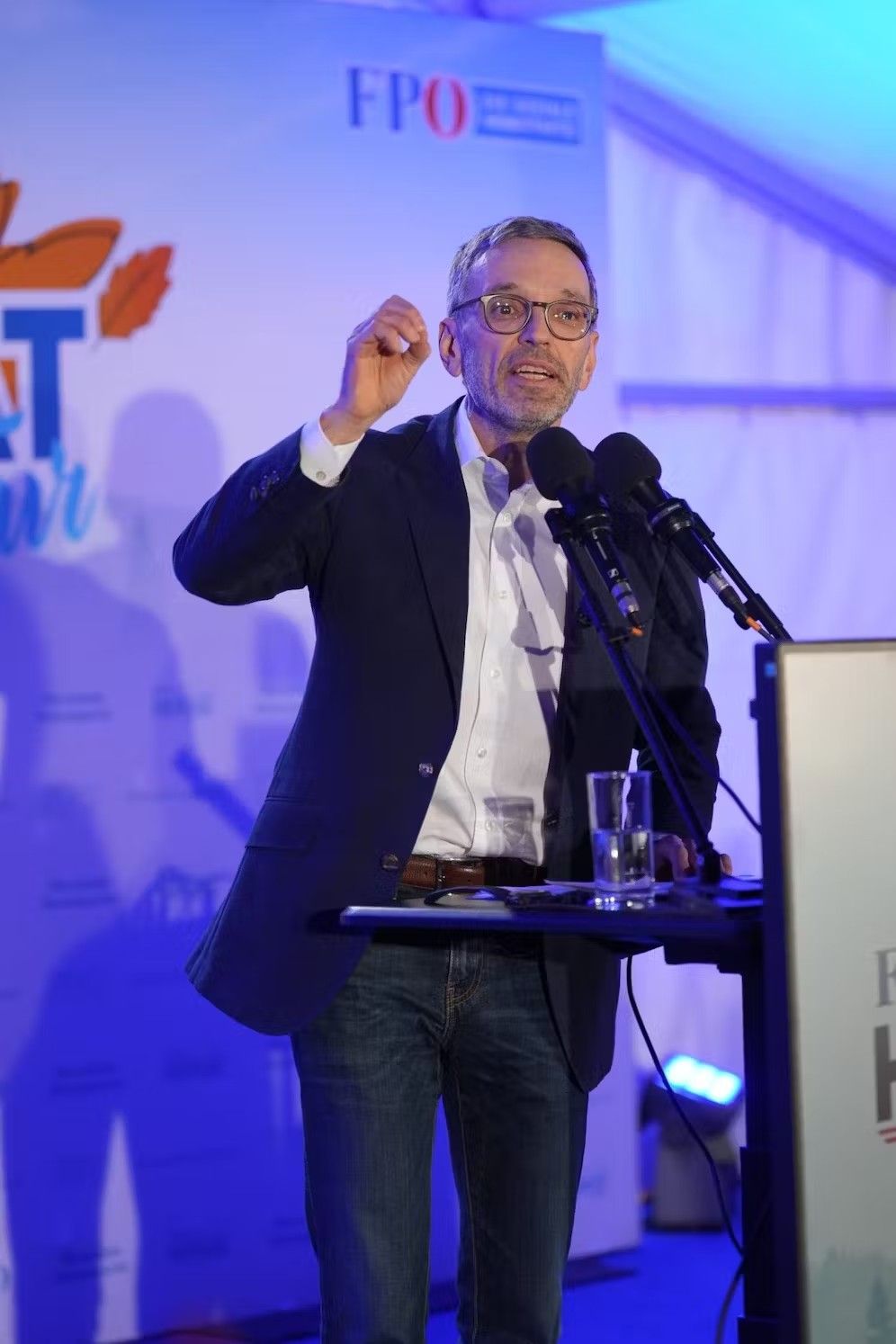

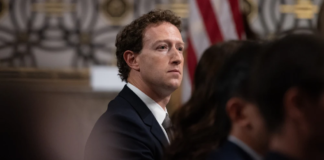


Bwer Company is a top supplier of weighbridge truck scales in Iraq, providing a complete range of solutions for accurate vehicle load measurement. Their services cover every aspect of truck scales, from truck scale installation and maintenance to calibration and repair. Bwer Company offers commercial truck scales, industrial truck scales, and axle weighbridge systems, tailored to meet the demands of heavy-duty applications. Bwer Company’s electronic truck scales and digital truck scales incorporate advanced technology, ensuring precise and reliable measurements. Their heavy-duty truck scales are engineered for rugged environments, making them suitable for industries such as logistics, agriculture, and construction. Whether you’re looking for truck scales for sale, rental, or lease, Bwer Company provides flexible options to match your needs, including truck scale parts, accessories, and software for enhanced performance. As trusted truck scale manufacturers, Bwer Company offers certified truck scale calibration services, ensuring compliance with industry standards. Their services include truck scale inspection, certification, and repair services, supporting the long-term reliability of your truck scale systems. With a team of experts, Bwer Company ensures seamless truck scale installation and maintenance, keeping your operations running smoothly. For more information on truck scale prices, installation costs, or to learn about their range of weighbridge truck scales and other products, visit Bwer Company’s website at bwerpipes.com.